The India Club, home away from home in the UK, closes next month, leaving a generation of immigrant families lamenting its loss
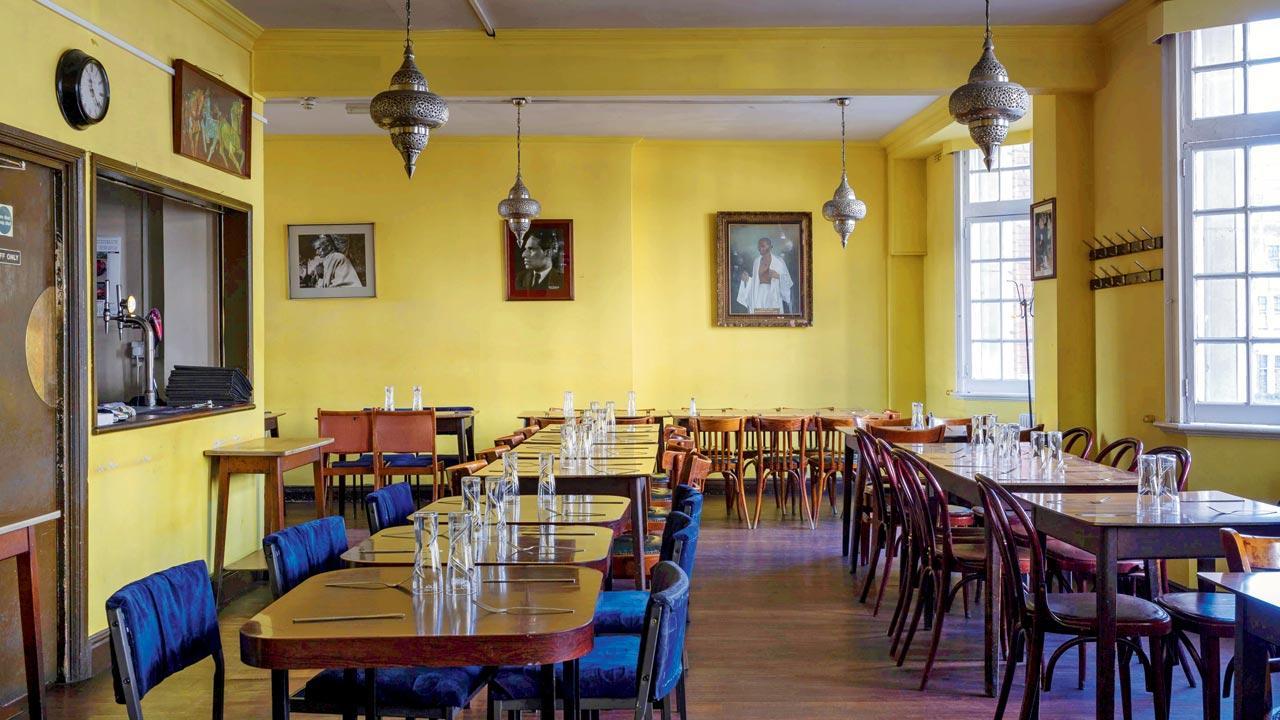
Iconic ndia Club in London will be shutting down on September 17. It was ormally opened in 1951 by the members of the India League, and was housed in Hotel Strand Continental. Pics Courtesy/Oskar Proctor
You can feel the history in your bones as you walk up the narrow staircase of The India Club, a no-frills restaurant started formally in 1951 by members of the India League (the organisation that campaigned for Indian independence in Britain). Located on the first floor of the 26-room Hotel Strand Continental near the Indian High Commission, it has been functioning as an India’s restaurant with significant community value. Back in the day, it was a hub for the rapidly growing British South Asian community in the aftermath of Indian independence and the Partition. The Indian Journalist Association, Indian Workers Association and Indian Socialist Group of Britain were just some of the groups that used the space for their events and activities. In fact, for the longest time, the building also served as a base for the new wings of the India League, which ran a free legal advice bureau, and a research and study unit.

Today, despite its central location, in the heart of London’s Strand, the building wears a weary look. The decor seems frozen in time, and maybe that’s why, the place had been immensely popular with tourists and locals alike. While their food was never fancy, it was always considered of good value with generous portions. After 70 years of being a part of London’s history, and an integral part of Westminster’s fabric, the restaurant is to shut down next month after losing a lengthy battle against closure. “It is with a very heavy heart that we announce the closure of the India Club, with our last open to the public day to be on September 17,” said the proprietors Yadgar Marker and his daughter Phiroza to the British Press last Monday. A few years ago, a ‘Save India Club’ appeal had ensured that the club wasn’t demolished. This appeal protested the application by the freeholder of the building, Marston Properties, with the Westminster City Council for a ‘partial demolition’ to create a new hotel. The application was unanimously turned down by the Council in August 2018, noting the venue’s importance as a cultural institution in the heart of London. However, the Club has now been served a notice by the landlords to make way for a more modernised hotel.
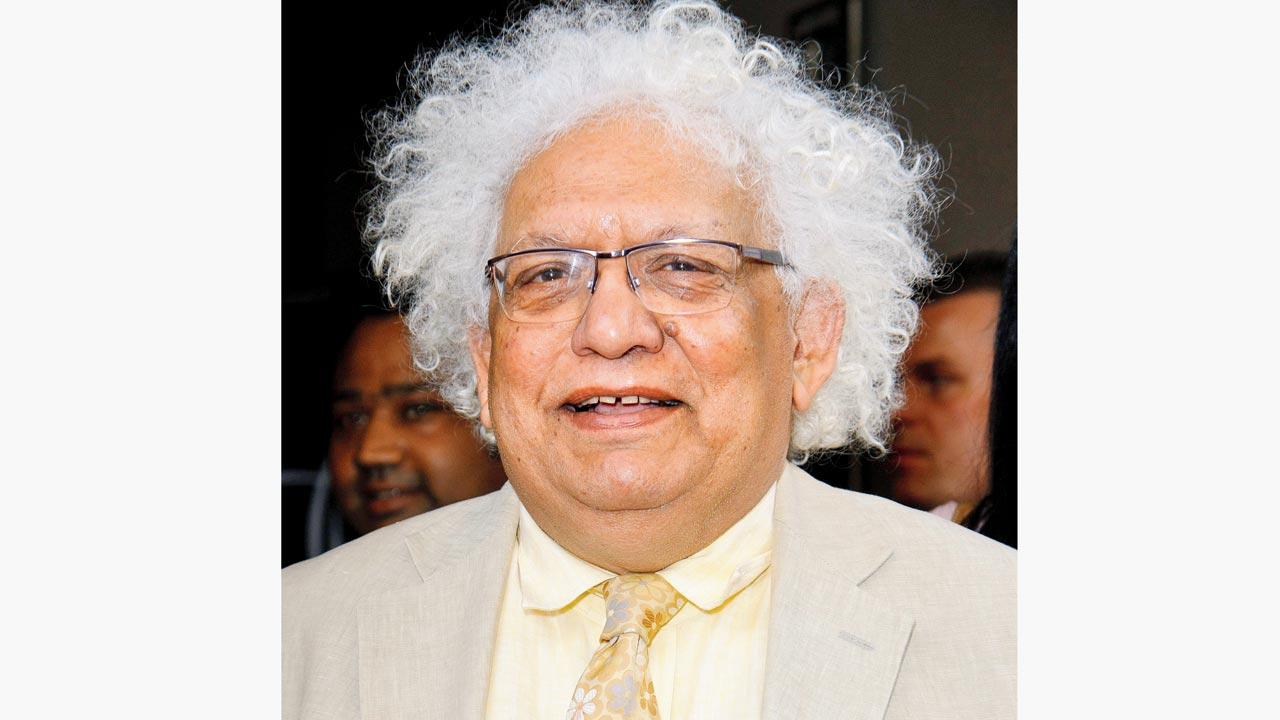 Lord Meghnand Desai
Lord Meghnand Desai
Senior Congress MP Shashi Tharoor took to social media to lament the loss: “I am sorry to hear that the India Club, London, is to close permanently in September. As the son of one of its founders, I lament the passing of an institution that served so many Indians [and not only Indians] for nearly three-quarters of a century. For many students, journalists and travellers, it was a home away from home, offering simple and good quality Indian food at affordable prices as well as a convivial atmosphere to meet and maintain friendships. As the picture shows, I was there this summer with my sister [we are standing in front of photos of my father attending club events in the early 1950s] and am sad to realise that that was my last visit since I will not be returning to London this year. Om Shanti!”
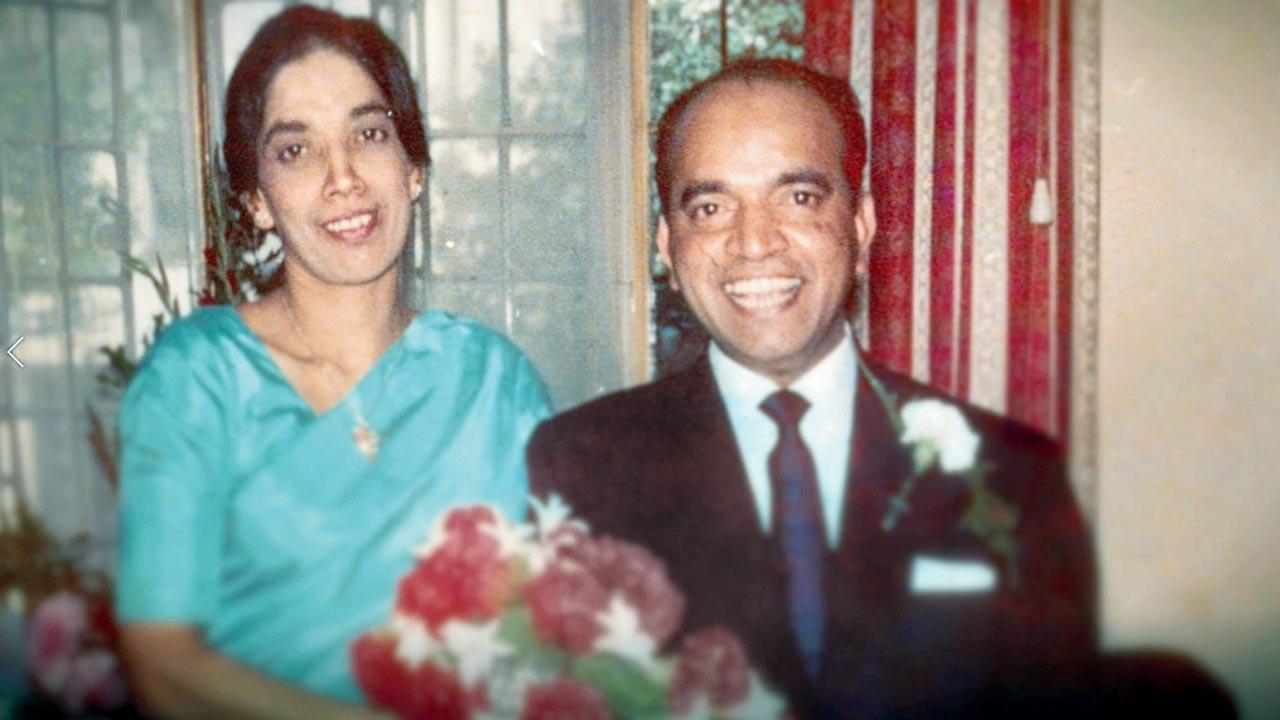 Gyanaprakasam Joseph, fondly referred to as Joseph, was head waiter at the India Club for 37 years. He held all his family occasions at the Club, including his wedding celebration. The public held a great attachment to him and on his passing, an obituary appeared in The Guardian
Gyanaprakasam Joseph, fondly referred to as Joseph, was head waiter at the India Club for 37 years. He held all his family occasions at the Club, including his wedding celebration. The public held a great attachment to him and on his passing, an obituary appeared in The Guardian
For Tharoor’s younger sister, Smita, who lives in the UK, the place holds a special place in her heart. On a phone call from London, she tells us how heartbroken she is, especially because she has been following the legal battle with the Markers. Smita had her first proper introduction to the India Club when her father, Chandan Tharoor, came to visit her in the 1980s. “I saw it through his lens, regaled with stories from his years there between 1949 and 1958, especially when he was a bachelor and had frequented the Club. Life got in the way when he got married and after my brother was born—the trips became less frequent before he eventually returned to India in 1958. During his time there, in September 1951, he wrote what we Malayalees call Ottan Thullal [recite-and-dance art form of Kerala], a satire on the behaviour of regular Londoners. There was this one bar-lady, Doris, who my father spoke of fondly. He said she took it on her to see how much the men drank there to the extent that he and his friends were very frightened of her,” she laughs. Chandan Tharoor passed away in 1993. One day in 2007, Smita held an event at the India Club in his honour. “Coincidentally, my siblings were in London and they could attend it too. Girish Karnad and his wife were there at the event, and so was Winston Churchill’s granddaughter. It wasn’t his death anniversary or anything, just a day remembering the fond memories of him at the place. We gifted the India Club four images from our archives as well, one of them had Krishna Menon at the restaurant. That event brought the India Club into the news again. My husband’s, and subsequently my 50th birthday, were celebrated there too. His Irish family just fell in love with the place. There are just too many memories. For many like us, it’s not just an establishment, but a home away from home,” she adds.
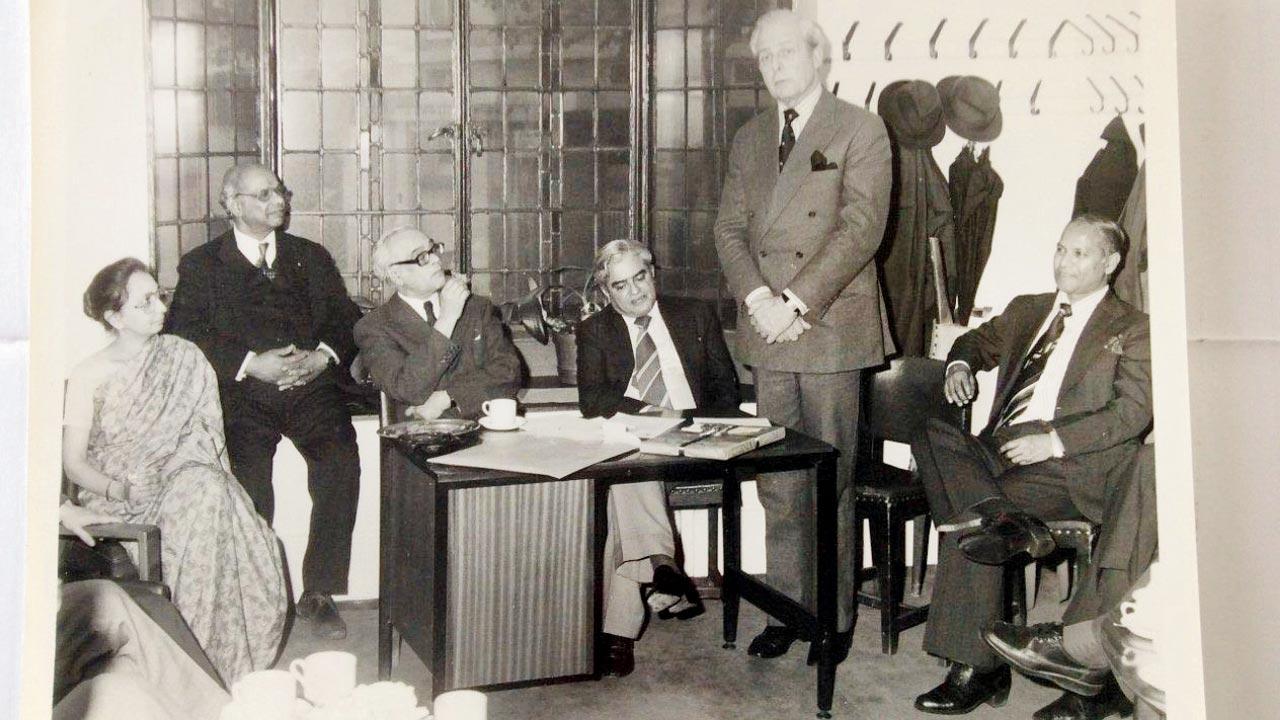 In 1966, the Air India office PR head for London was Trevor Turner (standing) was retiring. India Weekly Newspaper gave him this farewell party at the India Club. (From left) Kusoom Vadgama (author, historian and co-founder of Indo-British Heritage Trust), Dr Tarapada Basu (the India Weekly Editor), Dr Shalvankar (journalist columnist with India Weekly and the foreign correspondent of the Hindu, who later went on to Moscow as India’s Ambassador)
In 1966, the Air India office PR head for London was Trevor Turner (standing) was retiring. India Weekly Newspaper gave him this farewell party at the India Club. (From left) Kusoom Vadgama (author, historian and co-founder of Indo-British Heritage Trust), Dr Tarapada Basu (the India Weekly Editor), Dr Shalvankar (journalist columnist with India Weekly and the foreign correspondent of the Hindu, who later went on to Moscow as India’s Ambassador)
One of the Club’s founders, India’s first High Commissioner Krishna Menon intended it to be a place where young Indian professionals, living on a shoestring budget, could afford to eat, discuss politics and plan their future. He recruited cooks from Tamil Nadu and Kerala who dished out South Indian fare such as masala dosai and rasam. For many, it offered a welcome respite from everyday racism. Of the motley crew that came to be everyone’s family, the head waiter Joseph knew everyone and all their problems. He had the knack of making people feel special. Chef Ramalingam was one of the many brilliant cooks that the India Club nurtured over the years. Doris, whom everyone fondly spoke of, continued to serve in the bar well into her 80s.
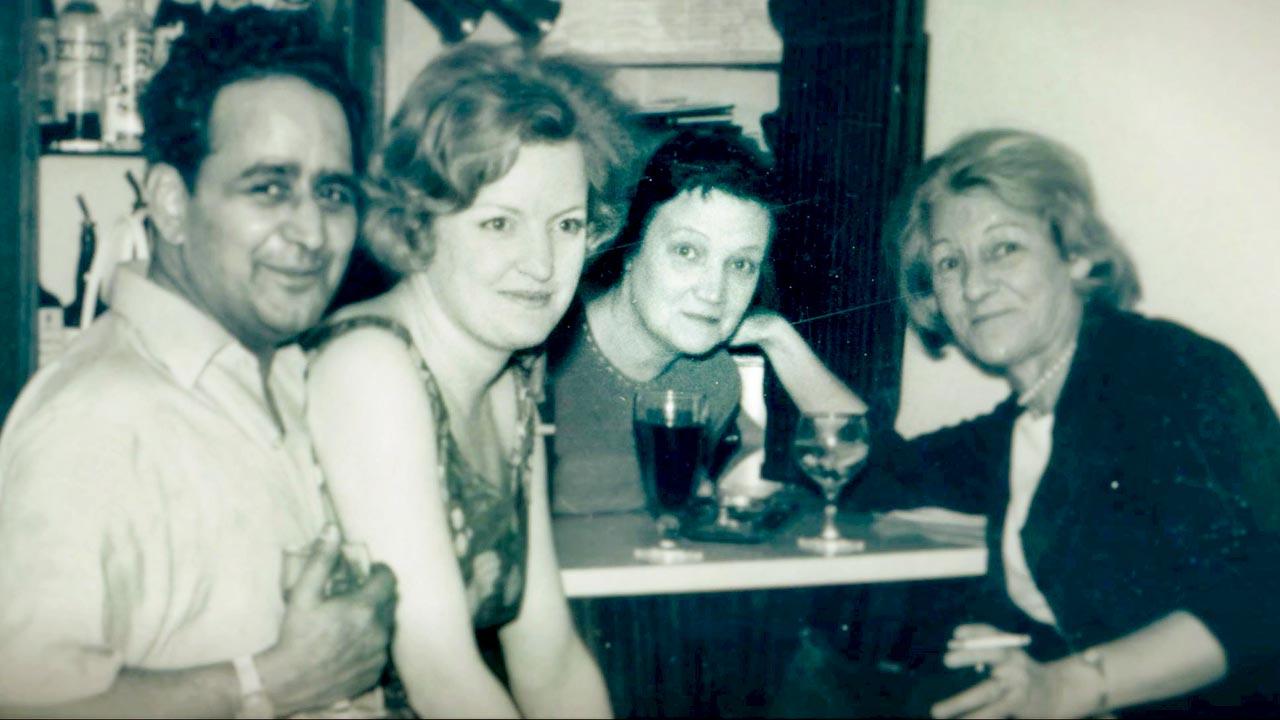 (Expreme right) Doris Mannell started working in the bar of the India Club in 1964 and refused to retire until she was touching 90
(Expreme right) Doris Mannell started working in the bar of the India Club in 1964 and refused to retire until she was touching 90
In 1997, the shareholders (some of whom had been part of the India League) wanted to sell the Club to someone who would respect its foundations and history. They invited Yadgar Marker, who had applied to take over the leasehold of the India Club to manage the premises. Only after being completely satisfied by his commitment to the Club’s ethos, they agreed to sell the leasehold to him. Since then, Yadgar and later his daughter, Phiroza (who was 10 at the time) have been running the show.
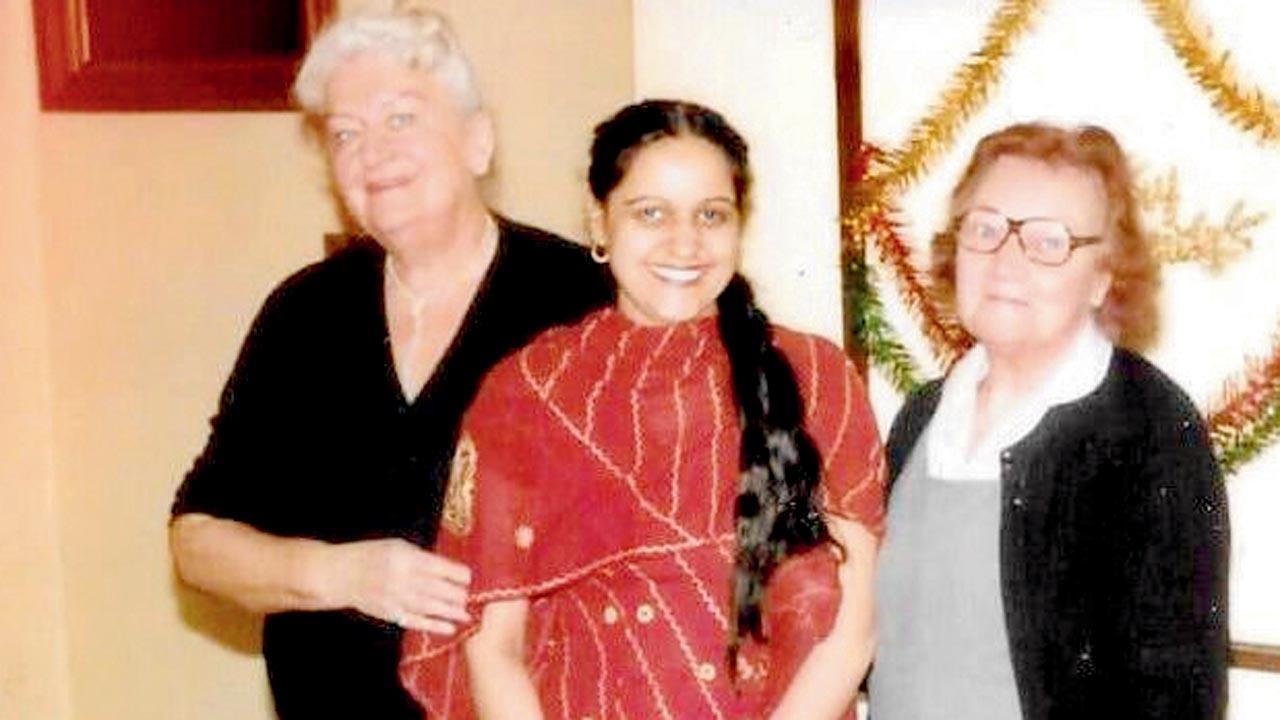 The three strong women who ran the India Club. (From left) Christine, head waitress, C Chauhan, who cooked in the kitchen and Doris
The three strong women who ran the India Club. (From left) Christine, head waitress, C Chauhan, who cooked in the kitchen and Doris
Lord Meghnand Desai, British economist and former Labour politician, has many happy memories of the India Club and Restaurant. “I arrived in London in September 1965 to take up a job at the London School of Economics (LSE). The older students used to tell us about a very cheap [affordable by Indian students] eating facility in the Indian High Commission itself, which is just between the LSE and the India Club. But by 1965, it was gone, and so we switched to India Club. I took many of my LSE colleagues—non-Indians—along and got them hooked to South Indian food.” Friday night became idli night, recalls Desai. They would go drinking to the LSE’s pub Three Tuns, and then step out and get a large table at the restaurant. “The food was always nice. I fondly remember waiter Joseph who was from Kerala and I believe he went back when he retired. I never tried other dishes except idli sambhar, masala dosa and upma. The India Club was a peculiar place because it was not at the street level. You had to cross the road which straddled between Fleet Street and the Strand [now that part has been turned into a traffic-free area]. The sign was not prominent. India Club was one of the friendliest and one of the most affordable eateries in the LSE area. It is a shame that it has finally been told to shut. There should be a blue plaque to celebrate its contribution to London life,” he adds.
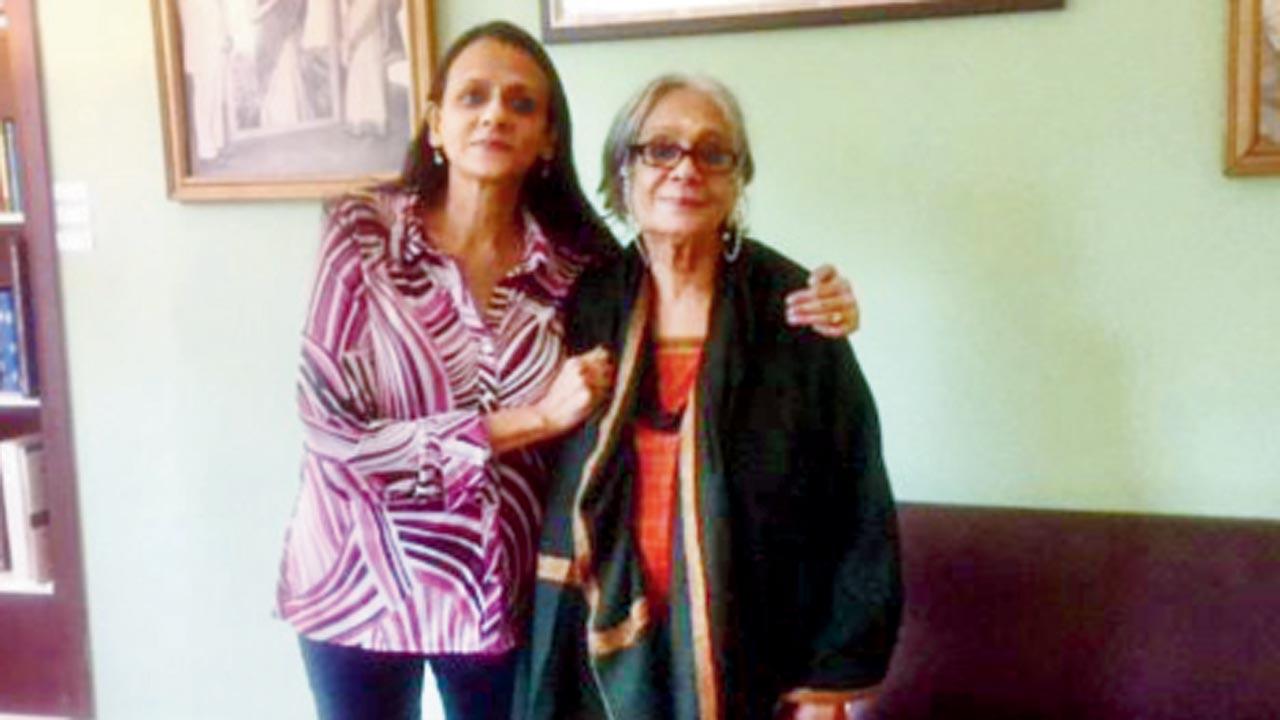 Motivational keynote speaker and trainer Smita Tharoor with her mother Lily at the India Club. Pic Courtesy/Smita Tharoor
Motivational keynote speaker and trainer Smita Tharoor with her mother Lily at the India Club. Pic Courtesy/Smita Tharoor
1951
The year that the India Club was opened in the heart of London
 Subscribe today by clicking the link and stay updated with the latest news!" Click here!
Subscribe today by clicking the link and stay updated with the latest news!" Click here!










